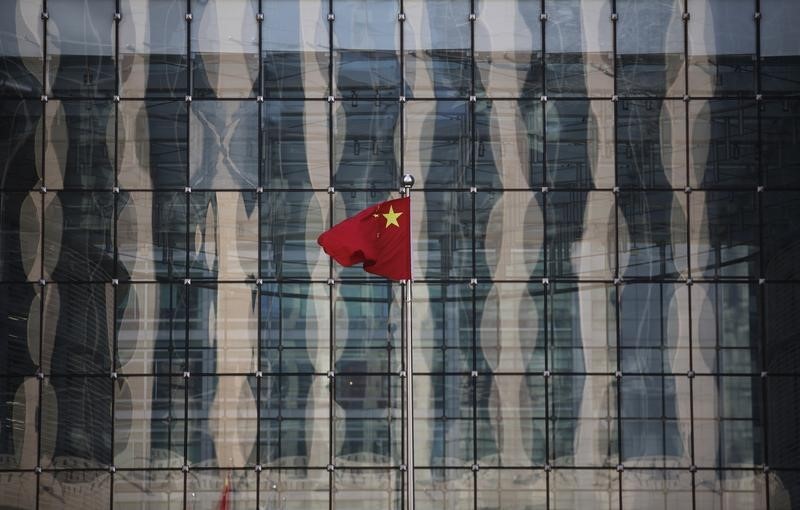BEIJING (Reuters) - All major Chinese enterprises owned by the central government will be turned into limited liability companies or joint-stock firms by the end of the year as part of reforms aimed at overhauling their unwieldy structures.
Beijing is trying to revive China's bloated state-owned sector and create "bigger and stronger" conglomerates capable of competing on the global stage.
Restructuring state-owned enterprises (SOEs) will separate government administration from management of day-to-day business operations, one step toward greater efficiency.
About 90 percent of firms owned by local governments as well as the central government in Beijing have already completed the process, the cabinet said on its website on Wednesday.
SOEs have waned in recent years in their contribution to China's economic output. Yet they continue to hold substantial resources ranging from land to funds.
Their bloated structure is partly responsible for SOEs' inefficient use of resources, just as China is asserting its clout in the global economy.
China is also pushing ahead with mixed ownership by allowing private capital to invest in firms while retaining the government's presence in the companies.
Beijing expects such diversification of corporate structures to take off in the second half of this year.
But the state-owned asset regulator has already said "erroneous" notions such as "privatization" and "de-nationalization" should be avoided.
And the cabinet said on Wednesday efforts would be made to strengthen the party's leadership at big state firms and to prevent the loss of state assets during restructuring.
The party's leadership will help protect employees' legal rights and ensure the stability of corporate reforms, the cabinet said.
One focus will also be on the formation of a board of directors at state-owned companies, the cabinet said, as part of efforts to bring it in line with present day corporate governance practices.
The board will have a say in major corporate decisions, hiring and salary distribution.
Salary corridors linked to corporate profits and productivity will also be set up, according to the cabinet.
PRIORITIES
The central government owns and administers 101 enterprises in sectors ranging from nuclear technology to medicine.
The state asset regulator has told the enterprises and their subsidiaries to hand in their restructuring plans by end-September, the official Xinhua news agency said on Wednesday.
Xinhua reported that 69 of the enterprises, holding assets totaling 7.97 trillion yuan ($1.2 trillion), have not registered themselves as either joint-stock companies or limited liability firms.
The subsidiaries of the 69 enterprises hold 5.66 trillion yuan of assets, Xinhua said.
Another problem facing China, particularly the lumbering state-owned giants, is a spike in debt since the 2008 global financial crisis.
Authorities have stepped up efforts to contain debt risks over the past year, and part of those steps have involved the restructuring of state firms.
Earlier this year, the central bank said banks will withdraw support for financially unviable firms, repeating pledges by other officials to drive "zombie" firms out of the market.
The SOE reforms come as the Communist Party prepares for a once-in-five-years congress in the fall.
Ahead of the congress, one of the government's priorities has been to ensure stability in the country's financial system. Further opening China's economy and markets is another focus.
China's securities regulator pledged on Wednesday to expand access to capital markets for all types of investors, while encouraging more long-term institutional participation in the financial domain.
